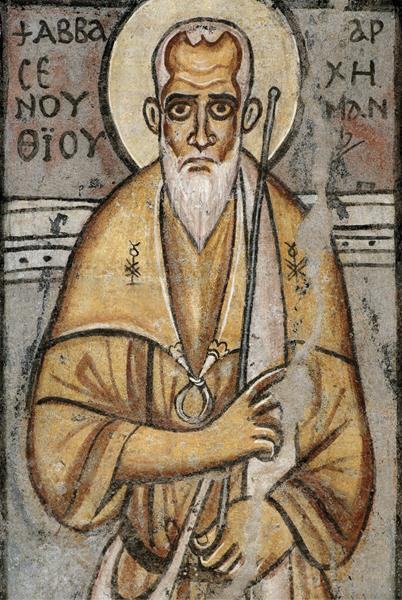Strata: Monks at Work
Ideals and Reality in Early Egyptian Monasticism

WHAT IS A MONK’S JOB?
For many early monastic leaders and ascetic theorists, the job of a Christian monk was the self-work of ascetic disciplines: fasting, prayer, sexual renunciation, obedience, and voluntary poverty. Undertaken alone or in community, these ascetic (i.e., self-denying) “labors” enabled monks to develop the virtues of humility, spiritual insight, and freedom from material ties.
Actual physical labor could also be an ascetic discipline: a physically difficult, demeaning, or tedious manual task that purifies the spirit by humbling the body. Giving every member of the monastic community the same humble task, like weaving flax ropes or mats, also promoted the desired sense of equality, erasing status differences among monks or pride in individual accomplishments.
The problem with this ascetic theory of work is that it assumes an upper-class ancient Roman perspective on manual labor and craft production. Such views, however, might not have been shared by monks of working-class origin or living in remote parts of the Roman Empire. Furthermore, the ideals of poverty, simplicity, and withdrawal from society that are promoted in early Christian monastic literature seem to be contradicted by contemporary archaeological and papyrological evidence.
Already a library member? Log in here.
Institution user? Log in with your IP address.

